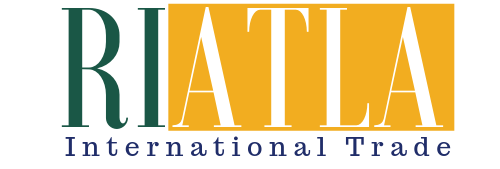We Bring Something Special
Your business is bound for unlimited success.
Foreign Trade
Expert Guidance
Get Your Goods Delivered
If you need to get your goods from anywhere in the WORLD to Brazil and vice versa, look no further, It’s time to take care of business!
International Services
By Sea, Air, Road or Rail
Let Us do The Heavy Lifting
Commitment to responsive service, innovation, and pro-active problem-solving makes RIATLA International Trade a great partner for emerging and established companies around the world.
Services
WE SHIP YOUR GOODS SAFELY OVERSEAS,
As If They Were Our Own
Export Services
Radar Enabling
Drawback
Customs Clearance
Import - On Behalf
Import - Under Order
ICMS Tax Benefits
Bonded Warehouse
DO YOU HAVE A DEMAND FOR ANY PRODUCT?
We May Find The Best Products And Suppliers In The National And International Market.
Guide
Most frequent questions and answers
Production takes place domestically and products are sold and shipped overseas. Directly or indirectly.
What is the best way to export?
It is up to the company to analyze the best option for its exports. This choice must be made based on the development stage of the enterprise; in its structure; and the availability of trained human resources to manage and execute export negotiation and operationalization.
There are two ways to export:
– Direct: without intermediaries, issuing the proforma invoice, providing the shipping documentation and receiving the payment from the importer;
– Indirect: through an exporting trading company, a trading company, and other indirect export options.
If the company opts for an intermediary, the issuance of the proforma invoice will be the responsibility of this trading company, which will act as an exporter, while the producing company will be mentioned in the process as a manufacturer or supplier.
In this case, the producing company will make an internal sale to the intermediary company, which will act as an exporter, making the entire process and issuing all export documents.
To operate in Foreign Trade the company must be duly incorporated and legalized in the Integrated Foreign Trade System.
The modalities of qualification in Siscomex are Corporate Company and Natural Person.
In the case of a Corporate Company, it is subdivided into 3 sub-modalities:
RADAR Express
The request is made electronically and the system verifies the necessary data for approval, dispensing with the work of receiving and analyzing the documents by a Department of Federal Revenue of Brazil server.
This submodality is intended for companies that intend to export without limits of values and imports, whose sum is less than US$ 50 thousand, in each period of six months.
RADAR Limited
Companies eligible for the limited RADAR sub-modality import up to US$ 150,000 over a six-month period if their estimated financial capacity exceeds US$ 50,000 and less than or equal to US$ 150,000.
RADAR Unlimited
In the unlimited submodality, the company will be able to import above the US$ 150,000 limit if its estimated financial capacity exceeds that amount.
RADAR Natural Person
This modality allows imports for their own consumption, to perform their professional activities – including artisans, artists, farmers and the like – and personal collections.
Benefits such as tax exemption for companies that import products in order to use them in the manufacture of goods for later exportation.
Release of goods by customs for entry into or exit from the country after their documentation and / or cargo has been verified.
The Department of Federal Revenue of Brazil, the customs authority, is responsible for exercising this supervision control of all foreign trade operations, following the entry and exit of goods from the country.
There are numerous checks to decide the conference channel. To define how deep the tax analysis will be, the Brazilian Internal Revenue Service has established the parameterization channels:
I – Green Channel
whereby the system will record the automatic clearance of the goods, without the documentary examination and verification of the goods;
II – Yellow Channel
whereby the documentary examination will be carried out and, if no irregularity is found, the customs clearance will be performed, the goods not being checked;
III – Red Channel
whereby the goods will only be cleared after the documentary examination and physical verification of the goods;
IV – Gray Channel
whereby the documentary examination, the verification of the merchandise and the application of a special customs control procedure will be performed to verify evidence of fraud, including the declared price of the merchandise, as established in a specific standard. Merchandise may be held for up to 180 days for investigation of fraud.
The selection procedure is performed electronically through Siscomex, based on tax analysis and customs risk management, taking into consideration, among others, the following criteria: (i) tax regularity; (ii) habituality; (iii) nature, volume or value; (iv) tax treatment; (v) origin, origin and destination of the goods; (vi) operational and economic-financial capacity; and (vii) occurrences in other operations.
The exporting company purchases goods from abroad with its own resources and promotes customs clearance in order to resell them later to an ordering company, previously determined by contract between the importer and the ordering company.
Importation on behalf of third parties is a service provided by one company – the importer – which promotes, on its behalf, the Customs Clearance on Importation of goods acquired by another company – the acquirer –
due to a previously signed agreement, which may also include the rendering of other services related to the commercial transaction, such as price quotation and commercial intermediation.
In importation on behalf, although the performance of the importing company may range from the simple execution of the importation order to the intermediation of trading abroad, contracting of transportation, insurance, among others, the importer is actually the acquirer, the principal of the importation, the one who effectively brings the goods from another country, due to the international purchase; although in this case it does so by way of interposed person – the importer on its own account and order – who is a mere agent of the acquirer.
Thus, even if the importer on its own account makes the payments to the foreign supplier, early or not, it is not a transaction on its own, but between the foreign exporter and the acquiring company,
because from it come the financial resources.
The exporting company promotes, on its behalf, the customs clearance of importation of goods acquired by another company (the acquirer), due to a previously signed contract, which may also include the rendering of other services related to the commercial transaction.
Imports by order are those in which the Importing Legal Company is contracted to promote, on its own behalf and with its own resources, the customs clearance for the importation of foreign goods. purchased by it abroad for resale to the predetermined orderer.
Thus, as on importation on demand the importer purchases the goods from the exporter abroad, provides its nationalization and resells it to the orderer, such operation has, for the contracted importer, the same tax effects of an own importation.
Ultimately, both the importer and the ordering party must have RADAR qualification and must have the economic capacity to pay for the importation via foreign exchange.
Toggle Content
Bonded warehouse or bonded general warehouse allows goods / accessories, both imported and destined for export, to be stocked until customs clearance, are of full responsibility for said warehouse, as a compliance with the laws and tax rules in force in the square.
This requires government authorization to operate..
IMPORT DOCUMENTS
– Proforma invoice
– Commercial Invoice
– Packing list
– Bill of lading
(AWB – Air, BL – Maritime, CTR – Road, TIF-DTA – Rail)
– Certificate of origin
– Transport insurance policy
– Letter of credit
– Import-to-order contract
– Import contract on account and order
– Import license, import declaration (DI)
– Invoice
– proof of import (CI)
– exchange contract
EXPORT DOCUMENTS
– Proforma invoice
– Commercial Invoice
– Packing list
– Bill of lading
(AWB – Air, BL – Maritime, CTR – Road, TIF-DTA – Rail)
– Certificate of origin
– Transport insurance policy
– Letter of credit, export registration (RE)
– Invoice
– Proof of export (EC)
– Exchange contract
What are Incoterms® rules?
ICC’s Incoterms® rules are the world’s essential terms of trade for the sale of goods. Whether you are filing a purchase order, packaging and labelling a shipment for freight transport, or preparing a certificate of origin at a port, the Incoterms® rules are there to guide you. The Incoterms® rules provide specific guidance to individuals participating in the import and export of global trade on a daily basis.
RULES FOR ANY MODE OR MODES OF TRANSPORT
- EXW Ex Works
“Ex Works” means that the seller delivers when it places the goods at the disposal of the buyer at the seller’s premises or at another named place (i.e.,works, factory, warehouse, etc.). The seller does not need to load the goods on any collecting vehicle, nor does it need to clear the goods for export, where such clearance is applicable.
- FCA Free Carrier
“Free Carrier” means that the seller delivers the goods to the carrier or another person nominated by the buyer at the seller’s premises or another named place. The parties are well advised to specify as clearly as possible the point within the named place of delivery, as the risk passes to the buyer at that point.
- CPT Carriage Paid To
“Carriage Paid To” means that the seller delivers the goods to the carrier or another person nominated by the seller at an agreed place (if any such place is agreed between parties) and that the seller must contract for and pay the costs of carriage necessary to bring the goods to the named place of destination.
- CIP Carriage And Insurance Paid To
“Carriage and Insurance Paid to” means that the seller delivers the goods to the carrier or another person nominated by the seller at an agreed place (if any such place is agreed between parties) and that the seller must contract for and pay the costs of carriage necessary to bring the goods to the named place of destination.
‘The seller also contracts for insurance cover against the buyer’s risk of loss of or damage to the goods during the carriage. The buyer should note that under CIP the seller is required to obtain insurance only on minimum cover. Should the buyer wish to have more insurance protection, it will need either to agree as much expressly with the seller or to make its own extra insurance arrangements.”
- DAT Delivered At Terminal
“Delivered at Terminal” means that the seller delivers when the goods, once unloaded from the arriving means of transport, are placed at the disposal of the buyer at a named terminal at the named port or place of destination. “Terminal” includes a place, whether covered or not, such as a quay, warehouse, container yard or road, rail or air cargo terminal. The seller bears all risks involved in bringing the goods to and unloading them at the terminal at the named port or place of destination.
- DAP Delivered At Place
“Delivered at Place” means that the seller delivers when the goods are placed at the disposal of the buyer on the arriving means of transport ready for unloading at the named place of destination. The seller bears all risks involved in bringing the goods to the named place.
- DDP Delivered Duty Paid
“Delivered Duty Paid” means that the seller delivers the goods when the goods are placed at the disposal of the buyer, cleared for import on the arriving means of transport ready for unloading at the named place of destination. The seller bears all the costs and risks involved in bringing the goods to the place of destination and has an obligation to clear the goods not only for export but also for import, to pay any duty for both export and import and to carry out all customs formalities.
RULES FOR SEA AND INLAND WATERWAY TRANSPORT
- FAS Free Alongside Ship
“Free Alongside Ship” means that the seller delivers when the goods are placed alongside the vessel (e.g., on a quay or a barge) nominated by the buyer at the named port of shipment. The risk of loss of or damage to the goods passes when the goods are alongside the ship, and the buyer bears all costs from that moment onwards.
- FOB Free On Board
“Free On Board” means that the seller delivers the goods on board the vessel nominated by the buyer at the named port of shipment or procures the goods already so delivered. The risk of loss of or damage to the goods passes when the goods are on board the vessel, and the buyer bears all costs from that moment onwards.
- CFR Cost and Freight
“Cost and Freight” means that the seller delivers the goods on board the vessel or procures the goods already so delivered. The risk of loss of or damage to the goods passes when the goods are on board the vessel. the seller must contract for and pay the costs and freight necessary to bring the goods to the named port of destination.
- CIF Cost, Insurance and Freight
“Cost, Insurance and Freight” means that the seller delivers the goods on board the vessel or procures the goods already so delivered. The risk of loss of or damage to the goods passes when the goods are on board the vessel. The seller must contract for and pay the costs and freight necessary to bring the goods to the named port of destination.
‘The seller also contracts for insurance cover against the buyer’s risk of loss of or damage to the goods during the carriage. The buyer should note that under CIF the seller is required to obtain insurance only on minimum cover. Should the buyer wish to have more insurance protection, it will need either to agree as much expressly with the seller or to make its own extra insurance arrangements.”
“Source: ICC website. The full text of the 2010 edition of the Incoterms rules is available at http://store.iccwbo.org/.
“Incoterms” is a trademark of the International Chamber of Commerce (ICC). “
For more information on ICC’s trademark and copyright policy in relation to the Incoterms® rules, please contact ipmanagement@iccwbo.org









